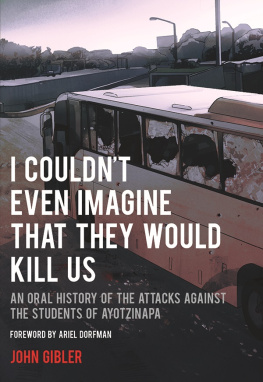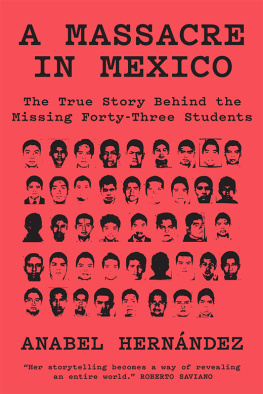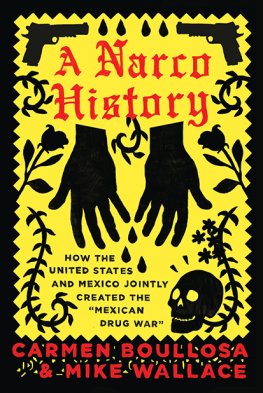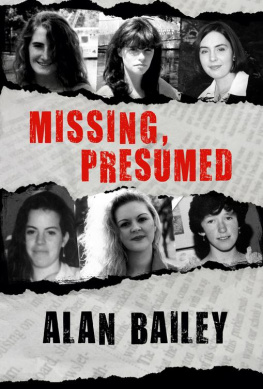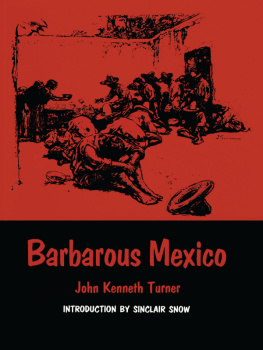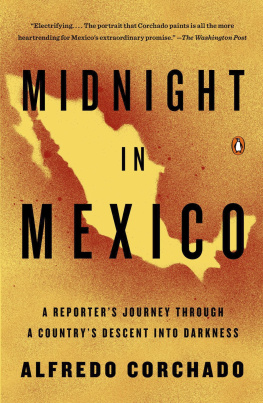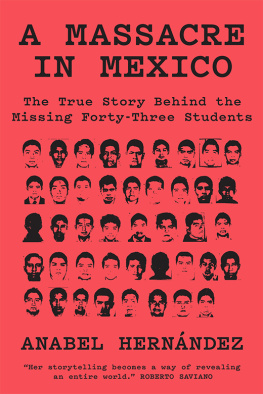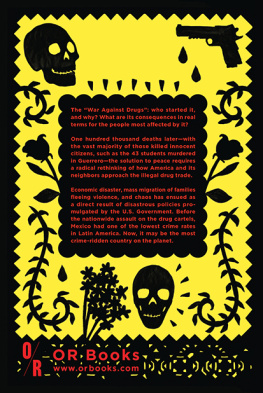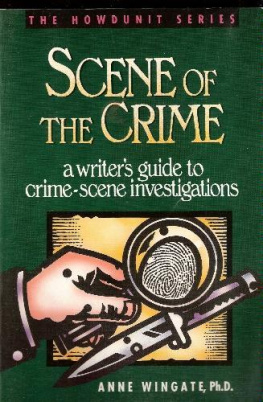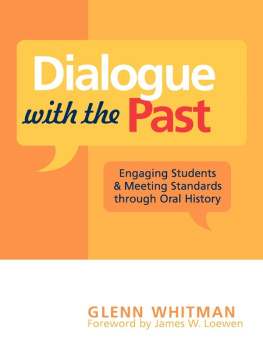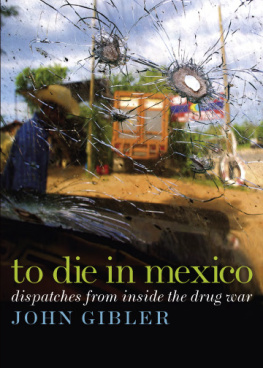ADVANCE PRAISE FOR I COULDNT EVEN IMAGINE THAT THEY WOULD KILL US
Journalist Gibler (To Die in Mexico) delivers a meticulous and affecting re-creation of the events of Sept. 26, 2014, in Iguala, Mexico, when police attacked five buses carrying students from the Ayotzinapa Teachers College and a youth soccer team. Six people died, 40 were wounded, and 43 students were loaded into police trucks and never seen again. This powerful oral history includes a chorus of voices: mainly the eyewitness accounts of the students but also the accounts of a teacher, soccer officials, reporters at the scene, parents of the disappeared, and others. It begins with the students discussing the teachers collegewhy they chose it (for many, because its free) and its values of social actionand proceeds with an account of the eight-hour attack and the aftermath in the schools basketball court, where the families gathered between search expeditions. Gibler, in his afterword, highlights how the scale of the tragedy galvanized Mexico, a country where the drug war enabled these forced disappearances, and eventually led to an independent investigation by a panel of international experts, the findings of which contradict the governments story. Its a heartbreaking reconstruction of a horrific event, made all the more profound by the persistent demand from the parents of the disappeared, their classmates, and citizens across country for the safe return of the students.
Publishers Weekly (starred review)
In Mexico, John Giblers book has been recognized as a journalistic masterpiece, an instant classic, and the most powerful indictment available of the devastating state crime committed against the 43 disappeared Ayotizinapa students in Iguala. This meticulous, choral re-creation of the events of that night is brilliantly vivid and alive, it will terrify and inspire you and shatter your heart.
Francisco Goldman, author of The Interior Circuit: A Mexico City Chronicle
The hideous Ayotzinapa atrocity reveals with vivid horror how Mexico is being destroyed by the U.S.-based drug war and its tentacles, penetrating deeply into the security system, business, and government, and strangling what is decent and hopeful in Mexican society. Giblers remarkable investigations lift the veil from these terrible crimes and call for concerted action to extirpate the rotten roots and open the way for recovery from a grim fate.
Noam Chomsky
A powerful and searing account of a devastating atrocity. Giblers innovative style takes us on a compelling journey through a landscape of terror and brutality against those whose only crime was to demand the freedom to think.
Brad Evans is a columnist on violence for the New York Times and LA Review of Books
We are fortunate to now have in English, John Giblers courageous account and oral history of the 2014 atrocity in Mexico in which 43 students vanished from the face of the earth and remain absent, while six more people (three of them students) were found dead, one of them mutilated. The US war on drugs has unleashed decades of unimaginable and hideous terrorism in Mexico, just as the war on terror is doing in the Middle East. The cruel viciousness of Ayotzinapa, with the 48 families of all the disappeared, murdered, and critically wounded students insisting on answers from the Mexican government, opens the door to a powerful resistance movement, which also requires U.S. citizens to insist on ending the US war against the Mexican people, which began in the 1820s and has never abated.
Roxanne Dunbar-Ortiz, author of An Indigenous Peoples History of the United States
PRAISE FOR TO DIE IN MEXICO
From its first shocking paragraph, this book takes the reader inside Mexicos drug war, a very real shooting battle involving rival gangs fighting to control hundreds of billions of dollars in product. And not only is the government unable to stop the war, in many cases, the government is part of it. To get the real story, journalist Gibler (Mexico Unconquered) hit the streets in some of the most dangerous Mexican cities and neighborhoods, speaking to reporters, photographers, kidnap victims, and the families of the murdered. The code of silence is difficult to break, since reporting on the drug cartels means almost certain death, often with impunity: only five percent of murders are investigated by the Mexican police. The problem is only growing, and the single thing likely to stop this juggernaut is drug legalization, which would make the trade less lucrative. But such a remedy isnt politic, and so the wars and the killings continue.
Verdict: This grim but important chronicle is an essential read for anyone interested in the real consequences of the war-on-drugs rhetoric.
Library Journal
Gibler (Mexico Unconquered) documents Mexicos drug war, its enormous profits and grievous human costs, in taut prose and harrowing detail.
Publishers Weekly (starred review)
Gibler argues passionately to undercut this case study in failure. The drug barons are only getting richer, the murders mount and the police and military repression expand as illegality increases the value of the commodity. With legality, both U.S. and Mexican society could address real issues of substance abuse through education and public-health initiatives. A visceral, immediate and reasonable argument.
Kirkus
While these might be difficult pills to swallow, few will dispute the authority of Giblers reporting or the force of his reasoning. For anyone still trying to make sense of it all, To Die in Mexico is a good place to begin.
San Antonio Express-News
What is groundbreaking about his book is his presentation in English of so many firsthand accounts that are typically available only in Spanish. News reports in the English-language media typically misrepresent Mexico as a drug nation while keeping silent about the impact on victims and about who consumes the drugs. By presenting Mexican voices in English, Gibler allows us to see the dignity and humanity of those who are caught up in this tragic war.
Mara Teresa Vzquez Castillo, Aztln: A Journal of Chicano Studies
The historical context provided in To Die in Mexico is essential for understanding the current drug war in Mexico. Gibler covers the political, social, and economic factors that have contributed to the violence, convincingly making the case that absolute prohibition is legislated death. Yet the true lifeblood of the book is the personal stories that Gibler tells through his interviews. Despite its title and thorough grounding in the disturbing reality of Mexicos narco-violence, To Die in Mexico is focused on lifethe lives of Mexicans who have lost loved ones, the journalists who cover the drug war in spite of its dangers, and even the lives of the dead, who would otherwise remain anonymous.
Anila Churi, NACLA Report on the Americas
I Couldnt Even Imagine That They Would Kill Us
AN ORAL HISTORY OF THE ATTACKS AGAINST THE STUDENTS OF AYOTZINAPA
John Gibler
Foreword by Ariel Dorfman

City Lights Books | San Francisco
Copyright 2017 by John Gibler
Oral history translated from the Spanish by John Gibler
Foreword Copyright 2017 by Ariel Dorfman
All Rights Reserved.
Open Media Series Editor: Greg Ruggiero
Cover illustration: Owen Freeman/California Sunday Magazine www.owenfreeman.com
Cover design: Herb Thornby
Maps: Jason Correia
Some portions of the afterword were originally published, in different form, in the
Next page
